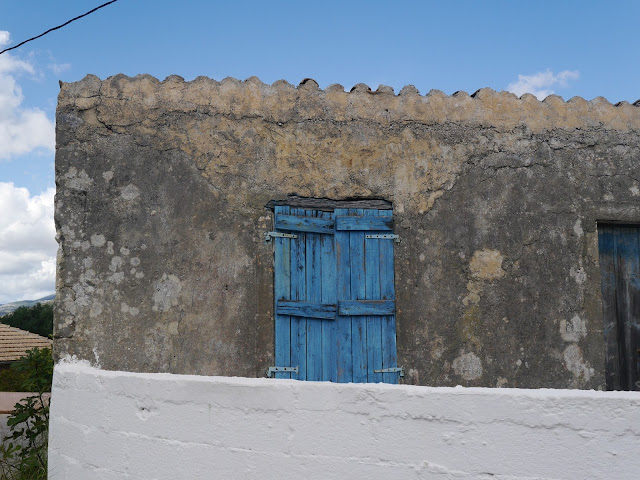From the beginning, Tatterdemalion has been its own creature, a being of instinct, of old mystery, of the magic lands that lie just beyond our dreams. All throughout its creation, I've been following a thread that I can hardly call my own. I followed it to England last autumn, where I met Rima in person at last, and found Unbound. This autumn I followed it again to Dartmoor, to the 2016 Dark Mountain gathering at Embercombe. There, we gathered by the Hedgespoken hearth to share fires and tea and words with friends now very dear.
Of a Friday evening that long September weekend, Rima and I, with the help of her Tom and my Simon, wove together a theatrical presentation of our Tatterdemalion, its first ever performance, on the Hedgespoken stage as the stars pressed out and the crowd gathered near on blankets.
It was an evening that seemed to have walked right out of the book. The Hedgespoken stage a place of warmth and comfort and also deep transformation and vision. Kind faces clustered across a canvas, holding ciders and pieces of cake and cups of beer. A fire in a dish the only light besides the lanterns and the stars. The music of Crow Puppets before, and after our Tatterdemalion, a strange and wonderful Welsh gypsy tale told by Tom until the hours were close to turning small again.
We dressed in clothing that felt ceremonial, with dark colored scarves covering our hair. I read by the light of a red lantern, and Rima played the accordion, and brought to life her puppet, threading those two hand-magics in and out of my words. Simon and Tom joined their voices to open the scene, and the music of a flute, coming from within a bell tent, lilted on in places of sorrow. When the reading was over, we removed our scarves, stepping out of that place of making, that landscape we both have walked in our different crafts, and talked with that kind and lovely audience a bit more about the making of the book.
The whole weekend, held by the lovingly-tended, generous land of Embercombe, with its rambling orchards and wet beech woods, and the brilliant Charlotte du Cann & Dougie Strang of Dark Mountain, was a kind of hearth fire. Base Camp, they called the gathering, and so it felt, especially in quiet, simple moments around nightfires with new friends, talking of the Northern Lights and listening to accordion and fiddle and flute, or during the rain with tea in the snug warmth of Hedgespoken, laughing over the sinister madness of American politics, and feeling the sheer medicine of good company and the simplicity of warm shelter that nevertheless lets the rain and wind quiver through.
Amidst all of this, Tatterdemalion felt at home, even a sense of homecoming, as if it had always intended its first recitation to be here, amidst the ripe apples and hungry fires and longing hearts of many for something other, something older, something wiser and wilder and free.
Something important transpired there, in the air, in the stars, by the dancing fire, by the warmth of big-hearted people, on that stage crafted of dreams, of dedication, of hard work and patience. Tatterdemalion was no longer a thing inside my own heart or pen, nor inside Rima's brush and canvas and dreaming. That performance was a ritual of sorts, the opening of a new door. The book went out into the world, spiritually. Into the hawthorn-daubed lane. Into the earth. A seed sown at the cusp of autumn. Finding a path for itself, ahead of its physical birth.
But, hurrah! I'm rejoicing where I sit because at last it is time to tell you all that Tatterdemalion is almost ready to go to print! Layout, text, and cover design are all but complete! Tomorrow, Monday the 24th of October is your last day to get your name in the back of the book! These editions will reach subscribers around Christmas time. Otherwise, you will have to wait until June of 2017 to get your hands on a trade edition copy, which will be a beautiful book, but the subscriber edition is made to be something special. It will feature Rima's gorgeous endpapers, and a beautiful, haunting dust-jacket of her cover painting, which you will be able to pin on your wall as a print if you so desire.
And, speaking of which.... At last, at last! The Grand Cover Reveal is upon us! Rima has written all about the process of painting the Tatterdemalion cover right here. Below is but a glimpse...
Follow here for the whole Making, and to get a book if you haven't already!
Rima and I await its official birth with much joy and inheld breath; this book has long been a thing of Dreams. Now it is close to real, and who knows where it will go or how it will fly? One thing we do know for certain is that sharing of it together on the Hedgespoken stage is a thing of great and heartening magic. Women's magic, its own and precious terrain. Our Dark Mountain performance was, I sense, the first of many. We are weaving plans for future Tatterdemalion shows—next year, at the end of spring, when the book is on the shelves of the world.
For now, it is still in its blossoming-- the long, slow way of birthing books! So, come help it along, get your name in the back and wish it well as it wings off to the printer, and then to your wintry doorstep!




















